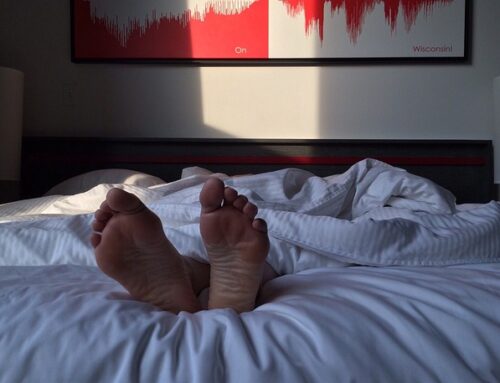That long stretch at the end of the day feels great! And, what you might look forward to the most is sitting back, relaxing and finally getting some rest. However, not everyone can say the same thing. While we all want rest and relaxation, some people often wake up feeling even more tired than when they went to bed. And that is never a good thing.
This means the person is most likely suffering from a sleep disordered breathing condition like obstructive sleep apnea or a form of it. When this occurs, most people don’t even realize it unless their bed partner says something. And, even when they are aware, many people don’t seek treatment for their condition. To help patients get the care they need, dentists should provide dental sleep medicine in their practices. Let’s take a closer look at what dental sleep medicine is in comparison to periodontology:
What is Dental Sleep Medicine (DSM)?
DSM is an area of dentistry focusing on the use of oral appliance therapy to manage sleep-disordered breathing, which includes snoring and obstructive sleep apnea (OSA). Dentists pioneered the use of oral appliance therapy for the treatment of OSA and snoring. The use of an oral appliance allows for a more comfortable treatment option for many patients that might be CPAP inept. It is similar to a mouth guard for sports or an orthodontic retainer, which makes for an easier solution to a condition. A custom-fit oral sleep appliance is an effective treatment for preventing the airway from collapsing by supporting the jaw in a forward position. An easy solution for a complicated condition. And, with the help of a sleep physician, you can receive proper diagnosis in order to properly treat your patient.
What is Periodontology?
Periodontology is a dental specialty that involves the prevention, diagnosis and treatment of diseases of the supporting and surrounding tissues of the teeth or their substitutes. It is also the maintenance of the health, function and esthetics of these structures and tissues. In other words, a periodontist is a dentist who specializes in the prevention, diagnosis and treatment of periodontal disease, as well as the placement of dental implants.
A Difference in Approach
While periodontology focuses on prevention, diagnosis and treatment, so does dental sleep medicine. However, dental sleep medicine dentists don’t do the diagnosing. Instead, dental sleep medicine dentists work with sleep physicians to gain a diagnosis after they might have noticed symptoms or signs of sleep disordered breathing or a patient’s responses to a questionnaire showed a possibility of this condition. From a diagnosis through a sleep physician, dentists can plan for proper treatment with oral appliance therapy.
A Joint Effort
Research has shown that periodontal disease is associated with several other systemic diseases. It has always been thought that bacteria were the factor linking periodontal disease to other diseases, but, more recently, research has shown that inflammation may be the culprit. By treating inflammation, it may not only help to manage periodontal diseases, but also the management of other chronic inflammatory conditions, such as:
- Diabetes
- Heart Disease
- High Blood Pressure
- Acid Reflux
Similarly, sleep apnea affects the body in the same way. From increased risk of cardiovascular disease to diabetes, comorbidities of sleep apnea are nothing to be ignored. By treating sleep apnea and periodontal disease, you can help your patients prevent further complications and systemic conditions.
Take a stand and help your patients receive the best care available. Remember, you’re often the first step toward a healthier life for your patients, so make sure you are aware of signs and symptoms.




